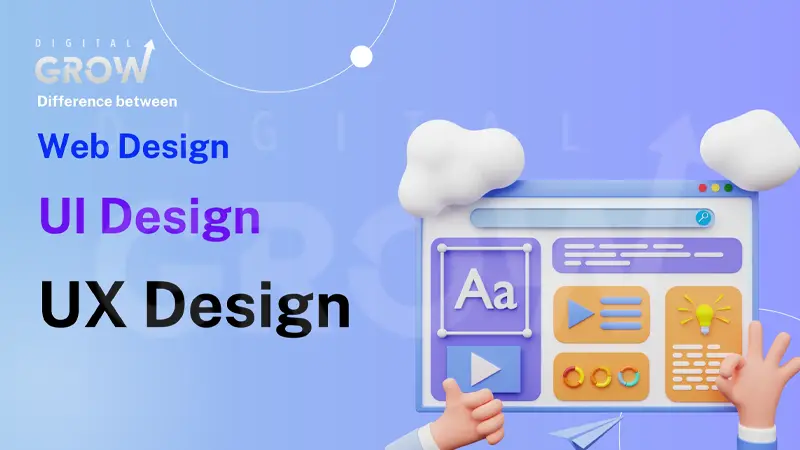Listen to this episode
In today’s digital age, businesses need more than just a strong product or service; they need visibility. This is where digital marketing agencies come into play, offering a wide range of services aimed at boosting your online presence, attracting the right audience, and converting leads into loyal customers.
Whether you’re a small startup or a large corporation, digital marketing agencies provide the expertise and resources needed to navigate the competitive online landscape. But what exactly do these agencies offer? In this comprehensive guide, we’ll explore the top services provided by digital marketing agencies, how they work, and why they are essential for business growth.
What is SEO? Search Engine Optimization (SEO) is the process of improving a website’s visibility on search engine results pages (SERPs). The goal is to drive organic traffic to your site by ranking higher for relevant keywords.
Types of SEO:
- On-Page SEO involves optimizing individual pages for specific keywords. This includes meta tags, headers, content, images, and internal links.
- Off-Page SEO focuses on activities outside your website, such as link building, social media marketing, and influencer outreach.
- Technical SEO addresses the backend structure of a website, improving things like site speed, mobile-friendliness, and indexability.
Why SEO is Important: SEO is vital because it makes your website more accessible to search engines like Google. Ranking higher on SERPs leads to more organic traffic, which can significantly boost sales, brand awareness, and authority within your industry.
Successful SEO Campaigns: One successful case study involved a small e-commerce company that wanted to increase its online visibility. After working with a digital marketing agency that implemented an SEO strategy, the business saw a 150% increase in organic traffic and a 50% boost in conversions within six months.
Tracking and Reporting: SEO efforts are trackable. Agencies provide detailed reports that include metrics like organic traffic, keyword rankings, bounce rates, and conversion rates. This allows businesses to see the tangible impact of their SEO investment.
Overview of PPC: PPC advertising allows businesses to bid for ad placement on search engines or social media platforms. Unlike SEO, which is organic, PPC gives you immediate visibility through paid ads.
Key Elements of PPC:
- Keyword Targeting: PPC campaigns are built around targeted keywords that match what potential customers are searching for.
- Ad Creation: Ads should be engaging and tailored to the audience. This involves crafting attention-grabbing headlines, concise ad copy, and compelling calls-to-action (CTAs).
- Platforms: Google Ads is the most popular PPC platform, but businesses can also leverage Bing Ads and social media platforms like Facebook and Instagram.
Advantages of PPC: PPC delivers immediate results, unlike SEO, which takes time. It also provides complete control over your advertising budget, as you only pay when someone clicks on your ad.
Successful PPC Campaigns: A healthcare company aimed to promote its new product line. By partnering with a digital marketing agency to run a Google Ads campaign, the company achieved a 70% increase in product sales within the first three months.
What is Social Media Marketing? Social media marketing involves using platforms like Facebook, Instagram, LinkedIn, and Twitter to promote your brand, engage with customers, and drive traffic to your website.
Organic vs Paid Social Media Strategies:
- Organic Social Media: This involves regular posting, engaging with followers, and creating shareable content to build a community.
- Paid Social Media: Running ads on social platforms to target specific demographics, interests, and behaviors.
Why Social Media Matters: Social media is one of the most effective ways to build brand awareness and engage with your audience on a personal level. Through consistent posting, targeted advertising, and community engagement, businesses can turn casual followers into loyal customers.
Successful Social Media Campaign: A local restaurant saw a 40% increase in foot traffic after running a targeted Instagram ad campaign featuring its new menu items and promotions. This campaign was managed by a digital marketing agency that crafted visually appealing ads designed to resonate with the restaurant’s target audience.
What is Content Marketing? Content marketing focuses on creating and distributing valuable content to attract and engage a target audience. Types of content include blog posts, videos, infographics, podcasts, case studies, and more.
How Content Marketing Helps with SEO: High-quality content improves your site’s SEO by providing search engines with more pages to index. Content marketing also allows businesses to rank for a variety of long-tail keywords, driving organic traffic.
Content Distribution Strategies: Agencies use various strategies to distribute content, such as social media, email marketing, guest blogging, and partnerships with influencers.
Success Metrics: Success in content marketing is measured by engagement rates, lead generation, and conversions. A well-crafted content marketing strategy will drive meaningful interactions with your audience, increasing the likelihood of conversion.
Overview of Email Marketing: Email marketing involves sending targeted emails to nurture leads, promote products, and maintain customer relationships. Automation is a critical aspect of email marketing, allowing businesses to send personalized messages at the right time.
Segmentation and Personalization: Segmenting email lists ensures that each customer receives relevant content. Personalization, such as addressing the recipient by name or sending tailored product recommendations, improves engagement and conversion rates.
Benefits of Email Marketing: Email marketing remains one of the most effective digital marketing strategies in terms of ROI. With automation and segmentation, businesses can reach their audience directly and deliver personalized experiences that encourage purchases.
Successful Email Campaign: An e-commerce business implemented an automated email marketing campaign to recover abandoned carts. This strategy resulted in a 20% increase in sales over the next three months.
Importance of Web Design: A website is often the first impression potential customers have of your brand. A well-designed website that is both visually appealing and functional can significantly impact customer acquisition and retention.
Custom vs Template Websites: While template-based websites are cheaper, custom websites offer more flexibility and can be tailored to your specific needs. A custom website allows for better SEO optimization, user experience (UX), and brand alignment.
Mobile Responsiveness: With the majority of users accessing the internet via mobile devices, websites must be mobile-friendly. Agencies ensure that websites are responsive and provide a seamless experience across all devices.
What is CRO? CRO is the process of improving the percentage of website visitors who take a desired action, such as filling out a form, making a purchase, or subscribing to a newsletter.
CRO Techniques:
- A/B Testing: Comparing two versions of a webpage to see which performs better.
- Heatmaps: Visual representations of where users click, scroll, or hover on a page.
- User Behavior Analysis: Understanding how users interact with your website to improve their experience.
Benefits of CRO: CRO helps businesses maximize the effectiveness of their existing traffic by converting more visitors into leads and customers.
Conclusion
Digital marketing agencies offer a wide range of services designed to help businesses grow online. From SEO and PPC to content marketing and social media, each service plays a crucial role in building brand awareness, driving traffic, and increasing conversions.
By leveraging the expertise of a digital marketing agency, businesses can focus on what they do best while leaving their online growth in the hands of professionals. Whether you’re looking to improve your search rankings, launch a new ad campaign, or redesign your website, choosing the right agency can make all the difference in your business’s success.
Want to learn more? Contact Grow Digital Agency for a FREE consultation today.



